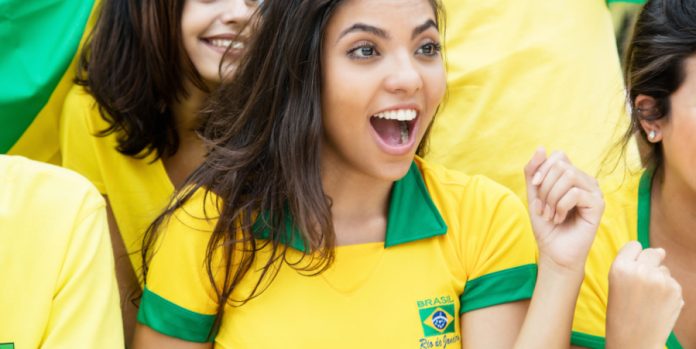In part two of our three-part overview from Udo Seckelmann regarding the legal considerations that must be taken into account for the regulation of the sports betting market in Brazil, the lawyer at Bichara e Motta Advogados analyzes tax and licensing systems, as well as the financial reserves that operators must guarantee in order to obtain authorization.
Excessive taxation might be the most debated point by stakeholders in the betting industry. The taxation of the activity, if established incorrectly, will eventually fail to achieve the objective of the regulation, which is to attract players to the licensed market.
It is true that the main interest in legalization is the collection of tax revenue by the government, which is aware that sports betting is already an existing and established industry in Brazil.
In short, taxation must accommodate three main parts: the government, the betting operators and the bettors. If one of them is excessively burdened, the whole system implodes. Thus, a high taxation on the activity will keep betting operators from obtaining licenses and establishing themselves in Brazil and bettors from using companies licensed in Brazilian territory.
Taxation on the Operator
To understand the taxation on the betting operator, it is necessary to differentiate the taxation on turnover and on GGR. The turnover is the total revenue of the operator, which is the sum of all bets made by consumers regardless of the final outcome of the prognosis. GGR, in turn, is the operator’s gross profit, ie the operator’s total revenue minus the prizes distributed to bettors who have obtained favorable results in their bets.
International best practices (such as the UK, Spain, Denmark, etc) show that GGR taxation is the most favorable for the development of the gambling industry. However, regulation in Brazil was moving towards a taxation on turnover, taking a lot of inspiration from the Portuguese model – considered by the international industry as a regulation that failed its objectives, since more than half of the Portuguese bettors continued to use the illegal unlicensed market.
After public consultations and strong criticisms about the adopted taxation, federal deputy Evandro Roman sent a draft amendment to Law No. 13.756/2018 so that the tax calculation basis excludes the prizes paid to bettors, thus adopting the taxation on the GGR. Such attitude should be praised as it shows that the Congress is open for debates and complying with the wishes of industry players.
Taxation on the Bettor
Article 31 of the Law No. 13.756/2018 provides that winnings over BRL 1,903.99 obtained by the bettors will be subject to an income tax of 30% through a deduction at the paying source, ie in the same way that lottery prizes are taxed.
One of the most criticized aspects of the law by bettors is the leveling of sports betting to conventional lottery. That’s because while in conventional lottery the odds (ie the probability of an event occurring) are fixed and immutable – based purely and simply on luck – the odds in sports betting are variable, defined by humans (odds makers), based on statistics and circumstantial factors surrounding the specific event to define its price.
This way, the professional bettor, unlike the recreational bettor, deeply studies the probabilities for the occurrence of that sporting event and the pricing given by the odds makers in order to enable the player to earn considerable amounts in the long run.
However, the constant ‘lose and win’ inherent to the sports betting profession was not taken into account when the activity was compared to a conventional lottery. Considering that in the pricing of an odd offered by an operator the costs, expenses and taxes to be borne by the company are already included – that is the operator indirectly passes on such charges to the bettor – the taxation also on the bettor’s prizes would be considered a high burden to be borne by them.
Thus, if a sports bettor receives BRL 5,000.00 for placing a bet on a right prognosis and loses BRL 10,000.00 for making other wrong prognosis, they will be taxed at source in BRL 5,000 even if the bettor has an overall loss. All of that without taking into account the charges already borne by the bettor when buying the odds, as described above. Taxing sports bets on both ends is considered an excessive measure, capable of driving many away from the legalized market.
The bettors’ claim, then, is to be equated with other classes of investors, in order to periodically declare their gains and losses in the income tax return, but be taxed only on their actual profits.
Licensing system
As discussed in the article “All-in for Brazil: How to Regulate a Multimillion Dollar Sports Betting Market”, any country that wishes to regulate sports betting must define the licensing system to be adopted aiming at a better control of the activity by public authorities. The legal approach would be to criminalize gambling structures, but to establish exceptions for operators who obtain a license and respect the requirements demanded by the issuing entity.
Although in the first Draft 2019 SECAP included the provision of an authorization regime, Draft 2020 fully altered that chapter to adopt a concession regime for the service exploitation. According to the Attorney General’s Office of Public Finance (PGFN), only the concession model would be able to provide for penalties in case of improprieties committed by licensed operators.
When announcing the Draft 2020, SECAP declared that only 30 licenses would be granted to operators through a competitive modality of bidding process, which has raised numerous questions among stakeholders, mainly because it is a much lower number compared to more mature foreign markets.
Therefore, it is questioned whether the limitation of the number of operators operating in the Brazilian market would be harmful, since it would restrict competitiveness. The high competition generated by a market where countless companies offer the same types of products tends to improve the services provided and reduce the prices offered to consumers. Sensu contrario, if there is an oligopoly exploiting such activity that is capable of influencing the prices offered in the market, the most affected will be the final consumer (bettor).
In this standard, it is clear that the limitation of licenses will benefit the largest companies in the betting market, which will fatally discourage national entrepreneurship in the industry.
Financial reserve
While Draft 2019 provided that the operator of the lottery modality of fixed-quota bets should set up their own financial reserve in the amount of BRL 6 million in order to guarantee the payment of prizes and avoid the default to bettors, Draft 2020 opted for not fixing any value, which must be established in the operator’s specific concession contract.
Regarding the financial reserve, there are two main premises to be adopted: it cannot be an excessive amount to the point of restricting competition in the bidding process, as discussed in the previous topic, and it must be enough to guarantee betting prizes. The incentive for small and medium-sized operators to participate is beneficial in both the economic and social sense, making it possible to reach operationally uninteresting Brazilian regions for large market operators.













